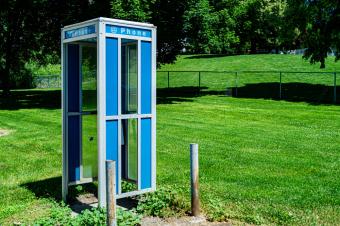
The Spanish people are a vibrant, kind, and exciting culture of people who live life to the fullest. Family life in Spain is anything but boring. and there are some unique values and traditions that the Spanish consider essential.
Family Life in Spain Is Full of Love
Many Spanish people consider family to be the single most important component of life. In this culture, familial relationships are valued and cherished. No matter the living arrangement or lifestyle choice, an emphasis on family is always at the forefront of Spanish minds and hearts.
Family Structure
The family structure and makeup can vary depending on Spanish families' personal preferences and situations. Some commonalities regarding family structure in Spain do exist, however.
Remaining Close in Proximity
When possible, family members choose to live near other family members, especially when they are residing in larger cities such as Barcelona or Madrid. Having family members to count on is important as Spanish parents rely on one another for help with the children. Extended Spanish families appreciate celebrating holidays and major events in each other's presence; thus, being close in proximity is helpful. That said, many young people tend to head for the big cities to begin their lives. If they were raised in rural parts of Spain, their older kin likely stayed behind.
Large Families Are Not the Norm
The birthrate in Spain is one of the lowest in Europe, much in thanks to a tedious economy and couples choosing to have children later on in life. Having children is expensive, and the job market is sparse. Because of this, it is common for families to only have 1-2 children. This, of course, is not a rule, and parents do go on to have more than a single baby or two, but large families are not as common in Spain as they are elsewhere.
Grandparents Are Key
Grandparents are very involved in Spanish children's upbringing when they can be. In Spain, it is typical for both parents to work long hours, and oftentimes Grandma and Grandpa are the primary caretakers for younger children.

Raising Children
When it comes to babies, Spanish parents have some specific values and traditions that they hold fast to.
Dual Names
In Spain, babies receive two surnames. The first surname comes from their father, while the second surname comes from their mother. As children grow up, it is not unusual for them to only include their first surname on things like social media accounts. In regard to official documents, both surnames will still be included.
Perfuming and Primping Babies
Babies in Spain smell delightful, and this is by design. Spanish parents commonly perfume their little ones with something referred to as Colonia. It is also common to have baby girls' ears pierced when they are very young. A gift of gold stud earrings is a traditional first present to the baby from the grandparents.
Educational Emphasis
There are three types of school that children can choose to attend. Public school is completely financed by the Spanish government. Concertados are privately run and partially funded by the state. Private schools are totally funded by parents and run independently.
Common Activities for Teens
As children grow up, their interests shift, and they begin to experience life outside of the family unit.
Time With Friends Outdoors
The weather is so lovely in Spain; it is common for older children and teens to hang out in parks or outdoor spaces with friends in the evening hours. Biking, basketball, and soccer are favorite pastimes, as is hanging out in cafes and local town squares.
The World Stops for Soccer
Soccer is celebrated in many parts of the world, and the Spanish people are some of the most passionate fans on the planet. Just about everyone in the country puts life on pause to watch Barca and Madrid face off.

Holiday Traditions
Like many other cultures around the world, Spanish families hold true to their unique holiday traditions.
The Twelve Grapes
Families and friends in Spain ring in the New Year by eating grapes. For over a century, the people of Spain have engaged in the New Year tradition of eating one grape per each bell ring at midnight. The grapes symbolize each lucky month that the Spanish people hope to have in the upcoming year.
Three Kings Day
Families in Spain celebrate something called Three Kings Day. The celebration, held on January 6th, is to honor Baby Jesus and the Three Wise Men. Parades are held in honor of the day, celebrators feast on a traditional dessert bread called Rosca de reyes, and children leave their shoes out for the Wise Men to fill with gifts.

Villancicos
This tradition is celebrated during the Christmas season and is essentially Spain's version of Christmas caroling. Families and friends gather to celebrate the holiday season by singing traditional songs like "Noche de Paz", "Mi burrito sabanero", or "Los peces en el río". Aguinaldos is another version of Christmas caroling, only here, carolers surprise friends with song late at night.
Families Fueled by Food
Families in Spain value food and mealtime and see cuisine as a way to bring everyone together.
Families Bond Over Food
There is a sense of community and love in almost everything the Spanish people do, including eating. Family gatherings center around meals, and meals are almost always meant to be shared. Tapas, or small plates of food, are common in Spain. When dining out, everything is meant to be shared, and people don't commonly order their own dish and scarf it down.
Meals in Spain aren't quickly prepared and consumed. Family and friends take their time dining, gathering, and visiting. Whether visiting a restaurant or eating at home, meals encompass large portions of the day. It wouldn't be uncommon for a midday meal to begin at 2 pm and linger on until well after 6 pm.

Night Owls
Spanish parents are devoted to raising night owls. It is common for the last meal of the day to occur when most children in the states are already snoozing. Children in Spain are encouraged to attend late-night gatherings at home and in public. It would be commonplace to walk into a restaurant or bar after 10 pm and witness adults and their children dining and socializing.
Work Hard, Play Hard
Parents and families in Spain have found a balance between working hard and playing hard. They put long hours into their careers, but then make sure to take time and celebrate their traditions, celebrations, and most importantly, their families.







